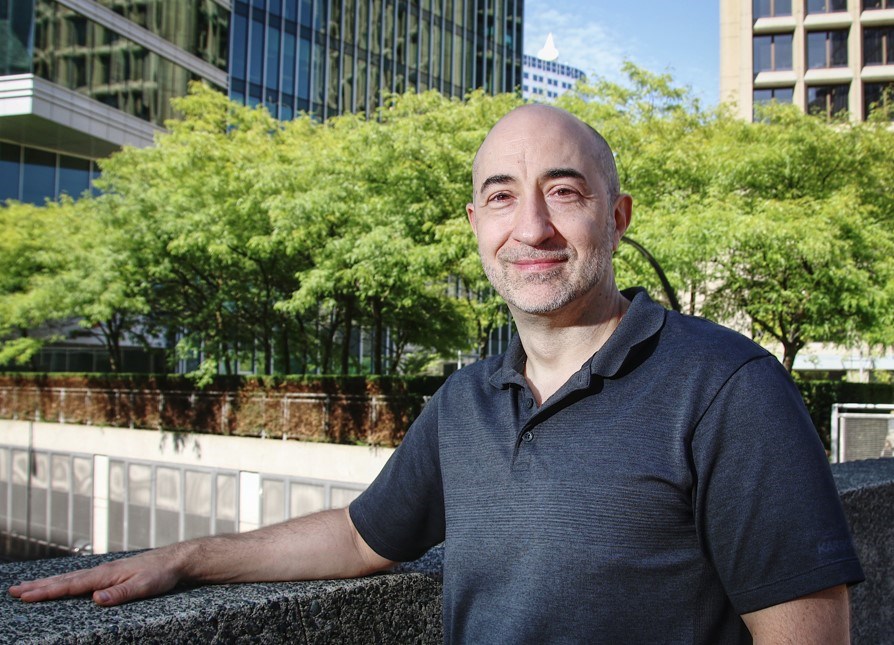Executives in B.C.'s artificial intelligence (AI) sector are excited for what they think it means for Canada to have its first dedicated minister of AI in a government cabinet.
Prime Minister Mark Carney this morning unveiled his new cabinet, and it includes former broadcaster Evan Solomon as the minister of AI and digital innovation. Past ministers that would have overseen AI have held other titles. François-Philippe Champagne, now finance minister, was minister of innovation, science and industry last summer when he made a trip to B.C. to announce funding for various AI ventures.
"The extremely positive thing is that this signals to the world how serious this government is about AI," said Rob Goehring, CEO of the industry association AI Network of B.C. (AInBC).
He said Canada was a world leader in AI in 2017, when the federal government devised policy directives and documented policy stances on the emerging technology. The country at the time was home to world leading researchers, sometimes dubbed as godfathers of AI: Geoffrey Hinton and Yoshua Bengio.
Since then, Goehring said Canada has started to lag other nations.
"Our leadership position has diminished," he told BIV this afternoon. "A lot of that talent has got bled into the U.S."
He pointed to a global ranking system by a company called Tortoise, which had ranked Canada as high as No. 4 in the world for AI capacity. Its latest report ranked Canada No. 8.
Goehring would like to see Solomon take moves to make Canada one of the best places in the world to conduct AI research and design, and to build and scale AI innovations.
Some moves to encourage bright talent to come to Canada could be tweaks to immigration or tax policy, he said.
Variational AI CEO Handol Kim agreed, when BIV reached him in Tokyo to relay the news of Canada's first minister of AI.
"We're delighted that the new government has elevated AI to at the cabinet level," he said. "It shows that they're paying attention and grasping the potentially transformative nature of AI across industry and society."
Kim would like to see more resources funnelled to the National Research Council of Canada Industrial Research Assistance Program (NRC IRAP) program.
He pointed to former prime minister Justin Trudeau's initiative to invest $2.4 billion to build AI capacity as a wise investment and something worth building on.
Ottawa has said that of that $2.4 billion, about $1 billion is earmarked to build Canadian public supercomputing infrastructure, while $700 million is designated to help mobilize private-sector investments to increase AI-compute capacity.
Simon Fraser University vice-president of research and innovation, Dugan O’Neil, told BIV in February, that his university would likely seek some of that money. Its bid would depend on what the requirements are in seeking the money, such as whether matching funds need to come from other sources, he said.
“None of that money has been rolled out yet,” O'Neil said in February.
“Somewhere between $500 million and $1 billion dollars worth of equipment would fit in our data centre.”
Kim said he also supports the government providing more money to facilitate academic research that benefits industry.
"I'm hoping that that more support is available for startups," he added. "There are non cash ways that startups can be supported."
Scrapping the Trudeau government's plan to hike the capital gains tax for some investors is one way to encourage investment in startups, Kim said. Carney on the campaign trail promised to do away with those proposed capital-gains-tax changes.
"It can be that they change the incentive and taxation structure to enable other investors to participate, and allow more investment to flow into this critical industry," KIm said.
Shea Coulson, a Harris & Co. LLP partner who includes AI as one of his areas of legal specialization, similarly praised the move to have a dedicated minister of AI.
"Appointing Evan Solomon as minister of artificial intelligence and digital innovation is the right signal," he wrote on LinkedIn. "We need to move much faster commercializing AI in this country and attracting massive investment and talent - and creating a stable and predictable regulatory environment to enable this growth."




